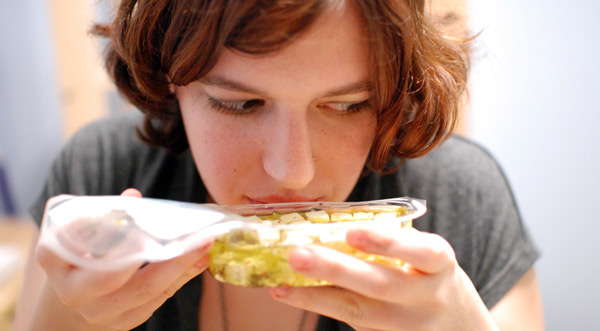Device was developed by scientists at University of London

A group of scientists at the University of London has developed a gadget that can make feel food tastier than actually what it is. The prototype introduced at The Big Bang UK Young Scientists & Engineers Fair, in Birmingham uses electric signals to make the effect, reported Telegraph.
While the prototype can boost sweet and salty taste, the scientists are working on developing the device to a full-fledged one which can stimulate all tastes.
“What started out as a fun engineering experiment has now led to something much more exciting with the potential to have a positive social impact,” said Dr. Cheok, professor of pervasive computing.
“The Taste Buddy could eventually help save lives, by allowing people to switch to healthier food choices. Many children hate the taste of vegetables. So I knew that when I became an engineer, I wanted to make a device that could allow children to eat vegetables that taste like chocolate,” added Cheok.
After developing the device, it could be fit within all utensils like spoons, cups, and cans. A prototype spoon is in the pipeline.
The device emits thermal and electric signals that stimulate taste buds which help feel food tastier than actually what it is. The chemical reaction happening in the mouth is stimulated using electrical signals and temperature.
The receptors on the tongue use the reaction between saliva and the acidity of hydrogen or sodium to recognize the salty taste. When Taste Buddy is used, electrical stimulation from the device stimulates artificial reaction.
Sweetness is recognized by a channel called TRPM5 which uses variation in temperature of the food. When hot food is taken, it feels sweeter. To exploit the temperature variation, the device quickly raises the temperature of the tongue from 77F (25C) to 104F (40C).
“We’re actually trying out a spoon interface to eat desserts at the moment. We’ve been changing the temperature of the spoon from 25 Celsius to 40 Celsius using an electronic circuit. People have reported sweeter tastes when eating sweets at a warmer temperature,” said Kasun Thejitha Karunanayaka who is also working in the group.
“Just like the microchip, we’re hoping to make the taste buddy smaller and smaller, to eventually fit within cutlery, fizzy drink cans, utensils, and cups, and to be powered by a Bluetooth device, to choose the levels of taste you’d like,” Karunanayaka added.



